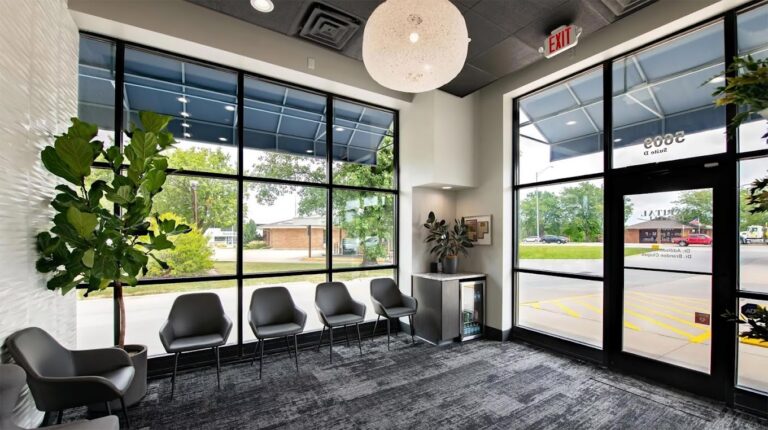Dental bonding and veneers are both dental procedures used to repair broken or decayed teeth, as well as to enhance the appearance of otherwise healthy teeth. While veneers cover the entire front surface of the tooth, bonding is only applied to a small area. Both procedures can help improve the appearance of your smile and adjust gaps between teeth. However, dental bonding is generally used in emergency situations such as cracked or chipped teeth, as it is the quickest way to repair the tooth and can be completed in a single appointment. Bonding is a great option for small to moderate defects or cavities on the front teeth. Keep in mind that veneers are an alternative solution that requires more time and upfront investment, but provides a superior and longer-lasting cosmetic result.
Dental Bonding
Dental bonding involves the application of a durable plastic material called composite resin, which is molded directly onto the teeth. This resin is then hardened with a special light, which ultimately "bonds" the material to the tooth to improve your smile's appearance.
-
Cost
Dental bonding prices may vary based on the complexity of the case and the number of teeth being treated.
Office Fees -
Procedure Duration
Dental bonding procedures are generally quick and can often be completed in a single office visit, typically lasting 30 to 60 minutes per tooth.
Call Capital Dental -
Pain Level
Dental bonding is a painless procedure that usually requires no anesthesia. Patients experience little to no discomfort during and after the treatment.
Schedule Online
01.
Process of Dental Bonding
Consultation: Discuss your cosmetic goals with our dentist, who will examine your teeth and determine if dental bonding is the right option for you.
Preparation: The tooth surface is slightly roughened, and a conditioning liquid is applied to help the bonding material adhere to the tooth.
Application: The tooth-colored resin is applied, molded, and smoothed to the desired shape.
Curing: The resin is hardened with a curing light.
Finishing Touches: After the resin has hardened, further trimming and shaping may be necessary, followed by polishing to match the sheen of the rest of the tooth surface.
02.
Next Steps After Dental Bonding
Follow-Up Care: Though not always necessary, a follow-up visit might be recommended to check the placement and response of your gums to the bonding material.
Maintenance Tips: Avoid chewing on hard objects like ice or pens, and minimize consumption of coffee, tea, or tobacco to prevent staining. Regular brushing and flossing are recommended.
Support: Our team is here to provide advice and help you care for your newly bonded teeth.
FAQ
-
Dental bonding vs. veneers—which one should I get?
-
What is gum contouring?
Gum contouring is a procedure that is commonly used to address the issue of a ‘gummy’ smile. During the process, some of the gum tissue is carefully removed and reshaped in order to expose more of the natural teeth. The decision to undergo this procedure is usually a very personal one, based on how you feel about the appearance of your gums. If your gums are uneven, or if they cover too much or too little of your teeth, then you may be a good candidate for gum contouring or gum reshaping.
-
How long does dental bonding last?
Dental bonding is an effective treatment for minor dental issues. Unlike veneers, the application of dental bonding is not as long-lasting and typically lasts for approximately ten years if you take proper care of your teeth. To ensure the longevity of the bonding, it is crucial to avoid hard candies, ice cubes, and other substances that can potentially break down and crack the composite material. It’s also important to note that the longevity of the application is affected by the area that was bonded. For instance, if you have an imperfect bite or grind your teeth, the composite may break down faster.

